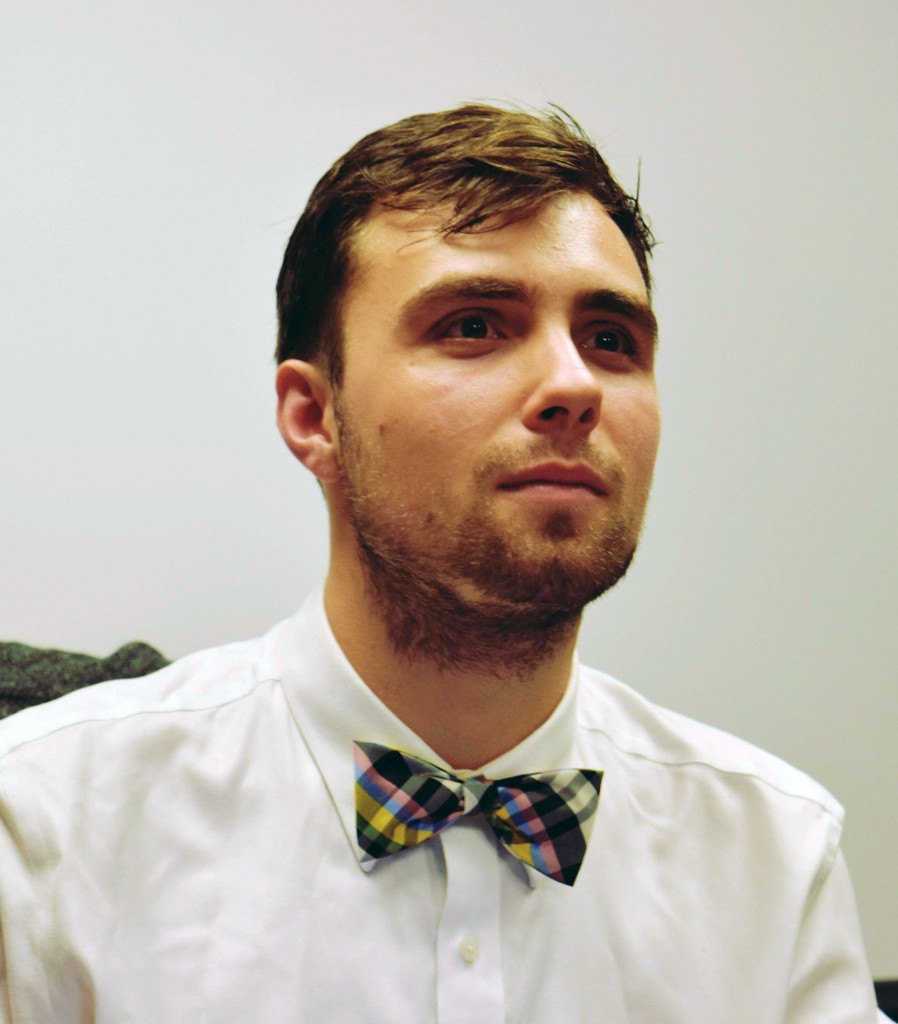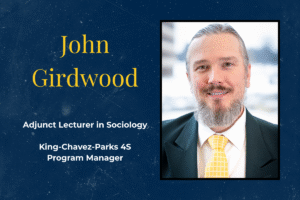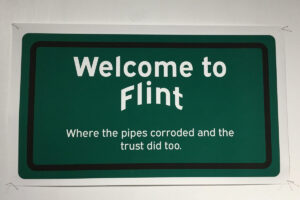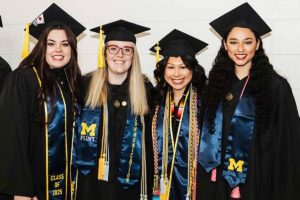Robert Burack
B.A. Political Science, 2013, Maize & Blue Scholar
Campus organizations: Alternative Spring Break, Pi Sigma Alpha (Political Science Honors Society), Qua contributing writer
What are you doing now and how did you get there?
Upon graduation, I faced a rather difficult choice as to how to best express my values and priorities. I had been offered a teaching Fulbright (U.S. State Department Fellowship) to Turkey (thanks in part to the diligent support and encouragement of English faculty member Mary Jo Kietzman), as well as a position at Break Away, a national non-profit based in Atlanta, where I had interned the summer between my junior and senior years. There was an immense lure to Turkey. I had spent the year immersed in regional literature in Kietzman’s “Travelers in the Middle East” course, most notably reading Orphan Pamuk’s Snow, a firsthand account of a poet’s visit to Kars in eastern Turkey and whose contents doubled as a sort of ethnic and political dialogue. The book completely mesmerized me — I glided through the chapters as Michigan’s own snow fell — as did the idea of living and teaching in Turkey, and the more cosmopolitan aspects of a Fulbright. But, ultimately, the stronger draw was the Break Away position, where I started as Programs Director a few months after graduation. The organization focused its efforts on fostering active citizenship in college students through alternative breaks, which are short-term service experiences, bookended by months of education and preparation, and a process of connecting the service experience to more local organizational and advocacy efforts. My role involved training and consultation for the service-learning and community engagement centers at 200+ universities and colleges, working with both their student leaders and staff. I felt it was important to commit to work that had a more visible and measurable impact, and personally I was drawn to the tight-knit and uplifting community among the staff. I’m delighted that the University of Michigan-Flint recently joined Break Away as a chapter school.
After two years as Programs Director, I transitioned to Pittsburgh, where I now live and am a Coro Fellow in Public Affairs at the Richard King Mellon Foundation. That’s an impossibly long title, and the work itself is equally far-reaching. I’ve been working since August 2015 on a set of projects aimed to innovate the region’s manufacturing sector, especially for small- to medium-size enterprises, of which there are 6,400. This has happened primarily through the scaling up of the Craft Business Accelerator (housed at the city’s community development financial institution, Bridgeway Capital), an effort to connect Pittsburgh’s makers and craft businesses with real estate development projects. Let’s say, for example, you’re a real estate developer building a large apartment building. My work is to convince you to source some of your functional objects (lights, tables, sinks, etc.) through the city’s really vibrant maker scene, and to support makers with working space, short-term capital, and access to business education services. Ultimately, we’re not only localizing the economic impact of development, but also creating new sourcing patterns that won’t need the same facilitation and bring small craft businesses to scale.
I’ve recently taken on more responsibilities at the foundation, working with a Senior Program Officer on her grant proposal pipeline. This looks like reading grant proposals, summarizing them in a write-up, reviewing grantee reports, and assisting with any connected due diligence. Additionally, I’ve been doing research around impact assessment metrics to support the foundation’s 2016-2020 strategic plan — to create ways for the foundation to assess whether its grant-making is effective and ultimately helps realize its program area goals. This has been a great deal of fun. RK Mellon is the 32nd largest grant-making foundation in the U.S. (by asset size), and is essentially equivalent, in the funding it provides, to the Mott Foundation, except that we almost exclusively fund in southwestern Pennsylvania. This is all possible through the Coro Fellowship in Public Affairs, which is a rather competitive, nine-month fellowship focused on diagnosing and intervening in the systems of, and issues connected to, U.S. urban centers.
How did your University of Michigan-Flint education prepare you for what you are doing?
I truly feel that my UM-Flint education changed my life. I was an undirected high schooler — smart, yes, but without a visible or imagined path forward. (I would not pay attention in math class, for example, but be reading New Yorker issues instead.) I did not really plan on going to college, and couldn’t fully grasp what it was, as no one in my family had gone before me. I enrolled at UM-Flint rather last minute, and my first time in the city was for freshman orientation. But I quickly and fully found an intellectual and social home, thanks to compelling political science courses, opportunities with University Outreach, and friends who were, smart, funny, and kind, and wanted to talk about what had happened on Rachel Maddow the night before.
So much of my own path has been stumbling into opportunities that turn out to be exactly what I needed, or that challenged and grew me beyond my own vision for myself. The great thing about Flint, and UM-Flint as well, and the thing that likely would have been different had I gone to some walled-off liberal arts college or impossibly large research institution, is that these spaces teach you humility and provide an opening for you to play a part in addressing true community needs. It’s a part of the DIY ethos that’s rich and bold and beautiful across the rust belt.
Last year I had an opportunity to consult for a grassroots organizing effort based in Ferguson, Missouri, and spent some time there throughout the spring and summer. This was personally helpful in deconstructing my own narratives about and around Ferguson, but the bigger takeaway for me was watching the way in which the lead organizers approached their work: their level of proactive action and comprehensive thinking about social, economic, and political systems. There are problems of urgency – that require something, now – and problems of importance – that require long-term, strategic thinking. For me, their approach blended the two. This is something I was first exposed to in Flint. At first I struggled to connect my own learning to some stark realities beyond the classroom. Participating in Andrew Morton’s (Theater) Collective Playwriting class was an important turning point, in that I saw a model for proactive action — we were writing a verbatim-style play about arsons in the city — that wasn’t tangled up, or frozen by, the complexity of a social issue. We weren’t always sure how the end product would turn out, and we learned and adjusted along the way, but we were doing something, creating an expressive form of dialogue, and it’s that approach that makes me think Andrew and the folks I met in Ferguson would like and respect each other. And it’s with that in mind that I would urge UM-Flint students to try to create and experiment and be bold and proactive, but to do it thoughtfully and with a high level of self and systems awareness.
I have days in Pittsburgh now where I feel so lucky to be doing what I’m doing, and I marvel at it, and I think, “how on earth does this trace back to what I’ve learned and done, to my life history?” Sometimes my professional life feels disjointed — as if the scaffolding I’ve begun to leave behind was laid out without a traceable pattern. But I solved this for myself recently, thinking about water. I’ve been immersed in coverage of, and activism around, the water crisis in Flint. As with other and past maladies in this city I love, I started off from a place of frustration and anger. Usually, this veers into temporary action, and then eventually simmers into disenchantment. But this time, I didn’t fall into that familiar cycle. I reached out to friends and colleagues to offer technical assistance. I considered what philanthropy could do, and how to build training around environmental racism. I wrote and wrote and in the end felt hopeful (Dr. West reminds us that hope goes beyond the evidence – hope says “it doesn’t look good at all,” but moves beyond what’s visible to create new possibilities based on contagious vision). I watched as my scaffolding and life history, all its bends and crooks, made sense and provided the basis for sustained action and active citizenship. This is obviously not a perfect example, given that I’m no longer in physical proximity to Flint, but it is proof from the future that, if you’re a current student, some days when you find yourself sitting in a classroom, eyes glazed over or at least unsure about the relevance of the information you’re hearing, you can be sure that, eventually, or at some point, it all matters, it all adds up, and the question is what you do with that summation. I hope you find circumstances that spur to you action, and bring your history of compelling experiences and knowledge to the table, even if that knowledge seemed previously unconnected.
Who had a significant impact on your time at UM-Flint?
I had a number of influential faculty mentors, including Drs. Peggy Kahn and Jason Kosnoski (Political Science), Drs. Thomas Wrobel and Hillary Heinze (Psychology), and Jan Worth-Nelson (English, Thompson Center for Learning and Teaching). I want to say a quick word about each of them, as I stand indebted to their kindness and attention, but first want to say, broadly: mentors matter. A great deal. And UM-Flint faculty were so willing to build meaningful relationships with me because I was interested and willing to build meaningful relationships with them. It’s the reciprocity that grows a mentorship. And it took me a while to learn that. I would have plenty of moments in a professor’s office, where I’d be talking and thought, “I sound so dumb” or “I don’t have much to offer this conversation,” but a mentorship relationship says, you do have something to offer, even if it will take a while for that to be expressed in the world.
Kahn was probably the faculty member I spent the most time talking with. There were many afternoon conversations, an independent study, and extended invitations such as the one to introduce writer Edwidge Danticat at a luncheon before her whole-campus talk.
Dr. Kosnoski was a beautiful, Socratic agitator who taught me the practice of inquiry, and whipped my thinking into shape.
I worked with Drs. Wrobel and Heinze as a peer facilitator for their UNV 100 Intergroup Dialogue course for several years, and their initial recognition of me as a freshman who could elevate into a facilitator role laid the foundation of confidence that become instrumental in the work I would go on to do.
And knowing Jan Worth-Nelson, who has since retired from the university, but by no means from meaningful work in the world (she’s the editor at East Village Magazine) was formative; her Creative Nonfiction course was the creative and emotional highlight of my undergraduate experience. Jan taught and relates with an affecting combination of strength and vulnerability, openness and intent. This class pushed me to contribute to Qua, our undergraduate literary magazine, and to be equally open, vulnerable, and strong. I once stopped into her office, which was on the second floor of French Hall at the time, overlooking the fall foliage, and interviewed her about fire and its resonance in her life. I’ve kept that audio and actually re-listened to it the other week; and started tearing up, just at the beauty and pain of it. And then I got to thinking about how fortunate I was, to find a home at UM-Flint — to have met this wonderful collection of characters who invited me into their stories, and to have had this wonderful collection of challenging and interesting experiences, most distinct to the Flint community and to the campus — and how no where else could all of this have happened.
What are your hopes for UM-Flint’s future?
There are so many verdant possibilities for UM-Flint in the future.
I’ve not met the new chancellor, but from the outside she seems dynamic, inclusive, and just sort of “gets it” when it comes to addressing racial and economic equity, as well as how the institution can be of service to the broader Flint community.
I think it’s misleading to say that rust belt communities are going to return to their previous state of prosperity — even Pittsburgh, which is in the midst of an incredible period of transformation, has only recently stabilized its population and continues to deeply struggle with racial and economic equity. But there’s potential for UM-Flint to be a leader in discovering what new urban forms might emerge in a legacy city, and for every touch point of the university (courses, student life experiences, internships) to connect students with that effort and with the city and its residents. While the Carnegie classification for engagement demonstrates that this has been happening on some level, I’ve learned from work at Break Away and work in Pittsburgh that the institution must work to extend the lifespan of partnerships that are otherwise on the university semester lifecycle.
The success of the city and the university are intrinsically tied together, and in this way I can imagine and get excited about the possibilities for students and faculty to move that success forward, and start from an institutional framework steeped in equity.





